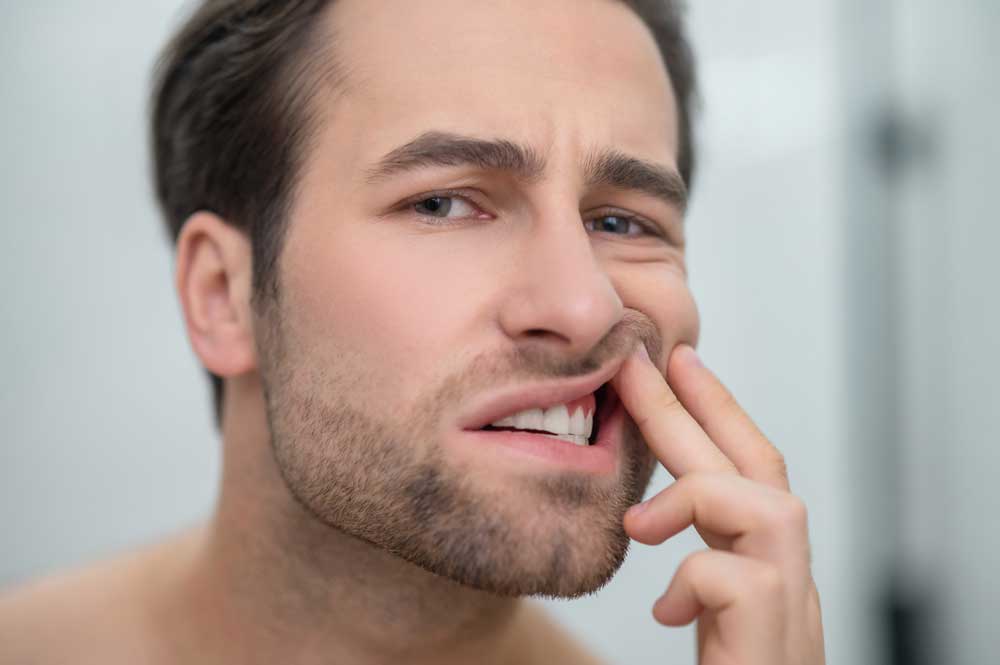Teeth grinding, also known as bruxism, is a common condition that affects many people of all ages. Bruxism involves the involuntary grinding, clenching, or gnashing of teeth, usually during sleep but also during wakefulness. Although the condition is generally not serious, it can cause significant damage to teeth and other dental problems if left untreated. While the exact causes of bruxism are not fully understood, research suggests that a combination of physical, psychological, and lifestyle factors can cause it. In this essay, we will explore the various causes of bruxism.
Bruxism can be caused by psychological factors such as depression, anxiety, and stress. People suffering from these conditions may unconsciously clench their jaws and grind their teeth to cope with their emotions. This can cause jaw muscle pain and, in the long run, tooth damage. Sleep disorders such as sleep apnea and snoring can also cause bruxism. When we have difficulty breathing while sleeping, our bodies may compensate by clenching our jaws and grinding our teeth. Furthermore, snoring can cause vibrations in the mouth and throat, leading to tooth grinding.
People who have an abnormal bite or misaligned teeth are also more likely to develop bruxism. Certain medications, like selective serotonin reuptake inhibitors (SSRIs), can also cause bruxism. These medications can affect the neurotransmitters in the brain that control muscle movement, leading to involuntary teeth grinding. Lifestyle factors like caffeine consumption, smoking, and alcohol use can also contribute to bruxism.
When to seek help
The most common symptom of teeth grinding is the sound of grinding or clenching teeth, which may be loud enough to wake up a partner. Some of the common symptoms of bruxism may include:
Worn or chipped teeth:
Over time, teeth grinding can cause wear and tear on teeth, leading to chipping, cracking, and even tooth loss.
Headaches and jaw pain:
Teeth grinding can cause tension in the jaw muscles, leading to headaches, earaches, and jaw pain.
Sensitive teeth:
Grinding can wear down the enamel on teeth, causing increased sensitivity to hot and cold temperatures.
Disrupted sleep:
Teeth grinding can lead to disturbed sleep, which can cause daytime fatigue and irritability.
Teeth grinding is a common condition that, if left untreated, can cause significant damage to teeth and other health issues. While the exercises below may help alleviate bruxism symptoms, they are not a replacement for professional medical or dental treatment.
At-Home Exercises for Teeth Grinding
While there is no single exercise that can cure bruxism, there are a few exercises that can help alleviate the symptoms of teeth grinding and jaw clenching. Here are some exercises that people suffering from bruxism can try:
Jaw Stretching Exercises
Start by opening your mouth as wide as possible, then slowly closing it. Repeat this movement several times, taking care not to overextend your jaw.
Tongue Exercises
Place the tip of your tongue on the roof of your mouth behind your front teeth. Slowly slide your tongue backward, pushing against the top of your mouth. Hold this position for five seconds, then relax and repeat.
Neck and Shoulder Exercises
Slowly tilt your head to one side, holding for a few seconds, then tilt it to the other side. Repeat several times. Next, roll your shoulders forward and backward several times.
Relaxation Exercises
Find a peaceful place and spend a few minutes practicing deep breathing or meditation each day.
The causes of bruxism are unknown, but stress, anxiety, and sleep disorders are thought to play a role. If you suspect you or a loved one is grinding their teeth, consult a doctor. Your dentist may recommend a nightguard or splint to help protect your teeth from further damage if necessary. In severe cases where there is extensive tooth damage or other health issues, your dentist may refer you to a specialist, such as an oral surgeon or a sleep specialist.
Early intervention can help prevent further damage to teeth and improve overall health and quality of life.

